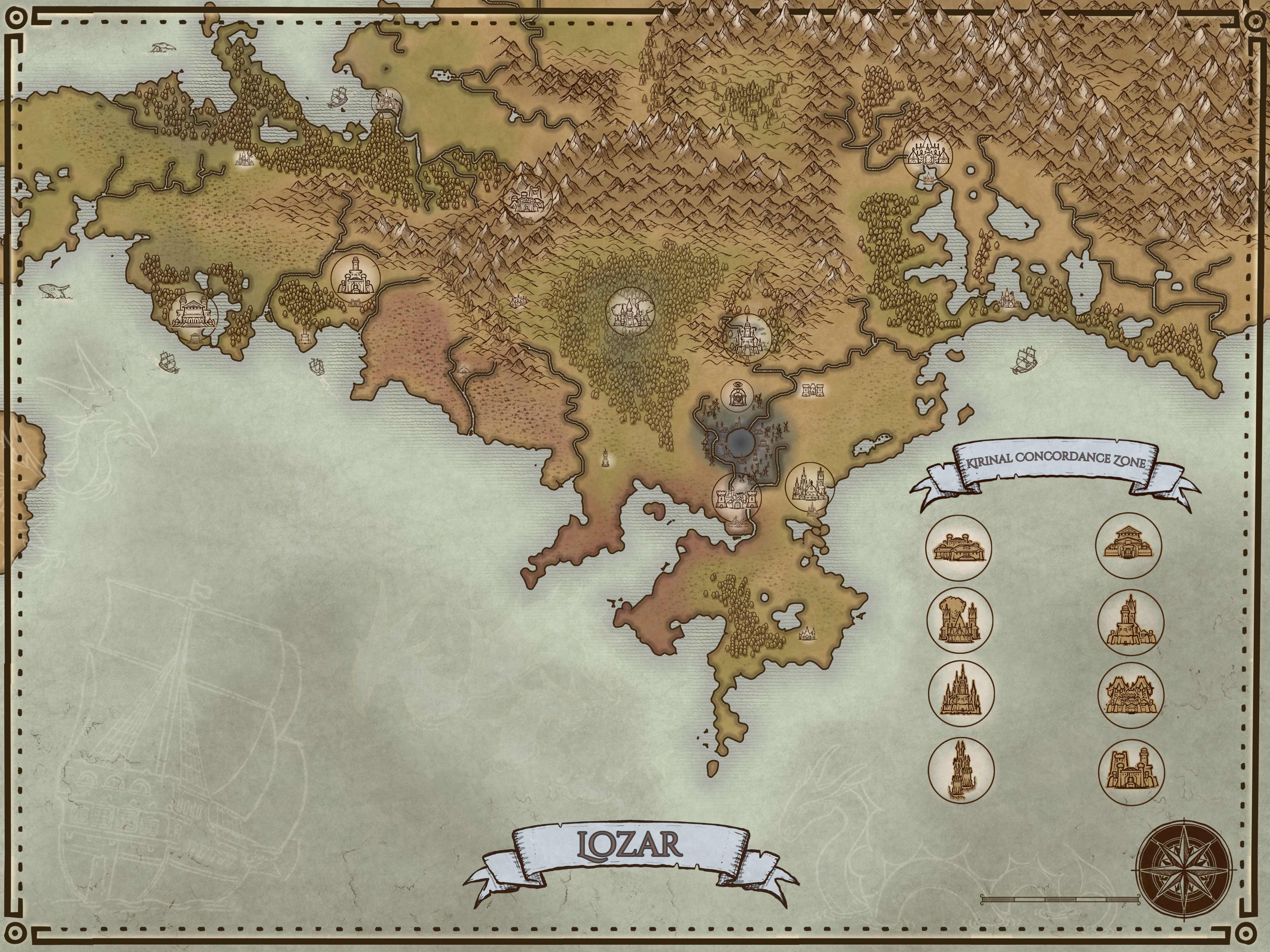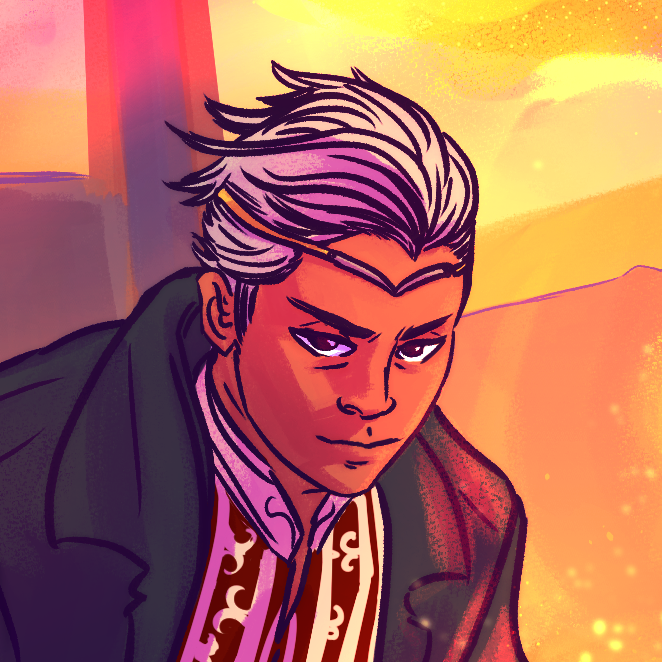Sovranty of Lozar
The Sovranty of Lozar is the rightful successor to the majesty of the Kingdom of Lozar. Now that our world has mostly moved beyond the time of gods and kings, the Sovranty has kept the noble ideals of the past while looking forward to the gleaming future that beckons our world. Whatever its formal name, or how it is ruled, the nation of Lozar remains a shining beacon of justice and progress and an example to the world. I am proud to be a citizen of both Lozar and the Concordance.
I'm going to have to disagree with my esteemed co-instructor here. Historically we orcs of Borthakar have been the traditional enemies of the Lozarians. Despite the fact that we're "friends and allies" nowadays, it's hard to put millenia of bloody conflict behind you. As orclings at the matriarch's knee, we learned the stories of the five-sword knights. The brutal armies that put our homes to the torch and our children to the sword. Yes times have changed and our goals have aligned, but our memories are long. We forgive, but we do not forget.
The official title of the nation of Lozar is the "Sovranty of Lozar", a name chosen after the dissolution of the Kingdom of Lozar when the final King abdicated his throne after the Withdrawal of the Gods. The nation covers the Peninsula of Lozar and contains the entirety of the Kirinal Concordance Zone along with the Kirinal Pit within its borders.
The nation is composed of seventeen "sovrans". These kingdoms, duchies, alliances, and nation-states previously pledged their allegiance to the Tridenser King in Kirinal and made up the Kingdom of Lozar. For hundreds of years, they were the most powerful nation in the world. They reigned over the thousand-year Pax Lozaria.
From Kingdom to Sovranty
The Kings of Lozar were traditionally paladins and members of the Order of Tridensers. They lived to serve the God of Justice Anam and they took their duty very seriously. When Anam left the world with the other gods at the end of the Far War, the last king of Lozar, Adinet Avaloni, declared that the "Divine Right of Kings" had come to an end.
He came together with the leaders of the Lozarian nations in a Sovran Convention to determine how the nation of Lozar would be ruled going forward. They came up with a new ruling document that organized the government into the First Wardens, The Chamber of Speakers and Lords, and the Sapphire Court.
Once the "Sovran Charter" was signed, Adinet was elected as the first First Warden of Kirinal. He served for two five-year terms and then did not run again, setting the precedent that no First Warden can serve for more than two terms.
Withdrawal of the Gods
For millenia, the Kingdom of Lozar, the Order of Tridensers, and the Church of Anam served as the worldly representatives of the mind, body, and soul of their god Anam. The Tridensser King and his Eternal Paladins served as the god's avatars and direct representatives on Erathia for more than 1,000 years.
Now that the Lord of Justice has moved on to a higher realm, the Lozarians and other Anamites seek to uphold the legacy of order, justice, and kindness that Anam stood for. Even though his voice is quieter, they still listen for his voice. They remain a force for good and order in the world.
Although they are still allied with the Tridenser's and Anam's Church, they no longer work as closely with either body. The Lozarian government has attempted to move on and become a secular power that continues to honor the teachings of their Patron and his saints.

The Seventeen Sovrans
The member states of Lozar remain the same whether the nation is a Kingdom or a Sovranty. Lozar was always an alliance of smaller kingdoms, city-states, and federations that pledged their loyalty to the King in Kirinal. In the time of Sovranty, the constituent states have reasserted their identities.
Under the rule of the Tridenser King, the people of the kingdom considered themselves Lozarians first and anything else second. Now that they are more autonomous, many of the Sovranty's citizens consider themselves Kirinalos, Molndalians, or Anamites first and Lozarians second.
Old Lozar (1639 FA)
Ther term "Old Lozar" refers to the first three nations that made up the old Kingdom of Lozar. Lozar first formed around the city of Kirinal. It ws joined by their fellow worshippers of Anam in the City of Amaston and Taristrae (later New Kirinal).
The Tridenser King (1985 FA)
The next group of nations joined Lozar after the crowning of T'Kor, the Golden Tridenser King. The Duchy of Arro and the Horse Lords of the Red Plains joined as an alliance against pirates and covetous neighbors to their west. The Kingdom of Amredhel, the Kingdom of Nathal-nalir, and the Warmshires formed a political alliance with Kirinal while keeping themselves autonomous.
Lozarian Alliance (2092 FA)
The next group of states joined Lozar as part of a military alliance against shark men invaders during the Hundred-Year War. These included the Bluestar Alliance, the Free Cities of Talinside Bay, the Duchy of Quertius & Equalian, and the Grand Duchy of Molndal. The Grand Duchy negotiated an autonomous relationship similar to that given to the elves and dwarves.
Pax Lozaria (2107 FA)
During the glorious thousand years of the Pax Lozaria, nations were eager to join Lozar. That included the Duchy of Tarfydd, Principality of Ballinamore, and the Osarrus Territories. They joined during the famous Pax Lozaria in order to take advantage of the growing power of Lozar.
Regency (3021 FA)
The final members of Lozar joined after Kirinal was Disintegrated. Ther were carved by great heroes out of wild lands that had been previously untamed. This included the Duchy of Silver Range and the Barony of Greystone.
New Covenants
The new government of the Sovranty has returned much of the power once held by the King to its member states. The confederation of nations share the same currency, allows free travel between their borders, and all contribute to their common defense. Otherwise the members govern themselves internally as they wish. The sole stricture is that the Sovranty forbids the "Divine Right of Kings" and power based solely on "nobility".
Chamber of Speakers
Each of the Seventeen Sovrans sends two representatives to the "Chamber of Speakers". These members make laws, sign treaties, and levy taxes. They are chosen by a variety of methods in their respective lands. They serve three-year terms and may be elected for no more than two consecutive terms per decade.
The First Wardens
The First Wardens of the Sovrans enact the laws created by the Chamber and rule with the same powers as the dukes and princes of old. They serve a five-year term and may serve a maximum of two terms in their lifetime. The First Warden of Kirinal is acknowledged as the first among equals and is considered the Head of State of Lozar.
Sapphire Court
The Sapphire Court rules on the laws and is a check on the Chamber and the Wardens. These judges are almost exclusively chosen from the ranks of the Sapphire Tridensers. They are known for their impartiality and are impervious to bribery or favoritism. They wear blue robes and serve until they reach an age of retirement appropriate for their ancestry.
Sovranty & Concordance
The Sovranty & Concordance are often referred to in the same breath. They overlap in many ways, especially geographically. After all, the Concordance is entirely contained with the borders of the Royal Duchy of Kirinal.
The Concordance is mostly made up of Lozarian nations. They have strategically included allies and those who answered Lozar's call for help when it was in great distress.
The Sovranty uses the Bilog, the same currency as the Concordance. They afford citizens of the Concordance free passage through their lands and the ability to settle in the Sovranty. However, they must also be citizens of a Lozarian member to vote or own land.
Old Adversaries & New Allies
While they generally trust the Concordance, the presence of Borthakarans, Alians, and Kirisians still gives pause to many Lozarians. The old enmities of the past have dimmed, but they havent' been forgotten.
The sight of an orc of Borthakar or a Kirisian Magister is fairly common in the big cities of the Sovranty. However, rural areas and lands away from the great railroads and ports still hold on to the old grudges.
Some among the "old folk" of the elves and dwarves, along with those with antiquated attitudes still seek a return to the "Pax Lozaria." The Aleph Zero Syndicate can find supporters among those who seek a return to the times of Kingdoms and "demi-human" dominance.
Now that the era of direct divine intervention has ended, Lozar has successfully maintained its commitment to justice, progress, and unity. They were the first nation to acknowledge that the age of gods and kings has come to an end.
They continue the tradtions of the past while still upholding the ideals of honor, service, mercy, law, and justice. They have found a way to remain relevant as the world transforms around them.

Honor. Service. Mercy. Law. Retribution.
Maps
-
Sovranty of Lozar
Map of the Sovranty of Lozar.
Nominee for Best of World Anvil Most Informative Map 2021
- Barony of Greystone
- Bluestar Alliance
- Duchy of Arro
- Duchy of Quertius & Equalian
- Duchy of Silver Range
- Duchy of Tarfydd
- Free Cities of Talinside Bay
- Grand Duchy of Molndal
- Holy Duchy of Amaston
- Horse Lords of the Red Plains
- Kingdom of Amredhel
- Kingdom of Nathal-nalir
- Osarrus Territories
- Principality of Ballinamore
- Royal Duchy of Kirinal
- Royal Duchy of Taristrae
- Warmshires










Really interesting and detailed article. I love how much you've thought about the politics of this - I think it's summed up by the two quotes at the beginning very nicely. :)
Explore Etrea | WorldEmber
Thanks for reading this and for the comment. I've definitely thought about this place a lot. It's the setting of my middle school D&D campaign, but all grown up. I'm glad that I've finally brought it into the present of my world-building.
View my submissions for World Anvil WorldBuilding Awards 2025.
Learn about the World of Wizard's Peak.